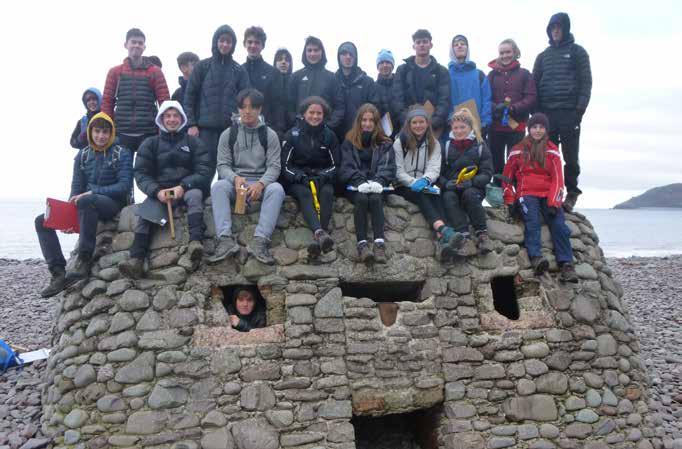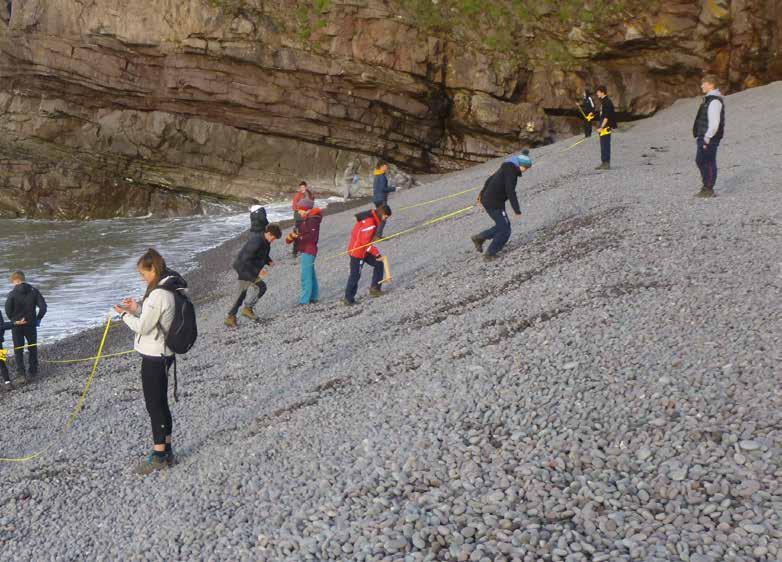
2 minute read
Geography
With seven of our 2019 alumni having set off to university to read Geography, the Autumn Term started as normal, with all years embarking on their respective topics or exam specifications inside New College. Outdoors, coats were zipped up and beanies donned for the fieldwork programme. This saw the Fifth Year investigate contrasting urban areas in Portsmouth Harbour, the Seconds exploring the bio-geographies of Africa and Asia at Marwell Zoo and the Upper Sixth piloting data collection at West Wittering and Chichester for their Independent Investigations (NEAs). This year we moved the Lower Sixth residential trip to the FSC’s centre at Nettlecombe Court for three days of fieldwork in and around the north Somerset coast, investigating beach morphology in Porlock Bay, contrasting the agricultural village of Wheddon Cross with the chocolate box tourism honey-pot of Dunster and coastal management at Minehead. Our students worked well into the Spring Term, preparing themselves for internal and external exams, as we made the switch to remote teaching and learning towards the end of term. Teething problems seemed to resolve themselves quickly and we all settled into a routine of Teams lessons and online Firefly marking. In fact, in the absence of internal exams, study leave and the various perennial fixtures in the Summer Term calendar, the First to Fourth Years actually worked through more content than usual.
Frustratingly, the best summer fieldwork weather in memory coincided with lockdown. As a consequence, the annual summer trips to Christchurch Bay (Fourth Year), New Forest (Third Year) and Lulworth Cove (First Year) didn’t happen. However, we were able to encourage pupils out of the house and away from screens with individual surveys into garden percolation rates, appraisal of local picnic spots and garden environmental quality patterns. In the absence of external exams, and study leave, it was particularly nice to be able to keep teaching the Fifth Year and Upper Sixth. The pre-A Level taster sessions were popular and productive, allowing pupils to sample a range of topics and activities from the A Level course. Our Upper Sixth C2C programme was drawn from the Cambridge University pre-U course. It produced some excellent research on overpopulation, Portuguese favelas, biodiversity and sustainable development, culminating in some wonderfully creative student presentations following an individually selected line of longitude from pole to pole.
Mr D Nighy












